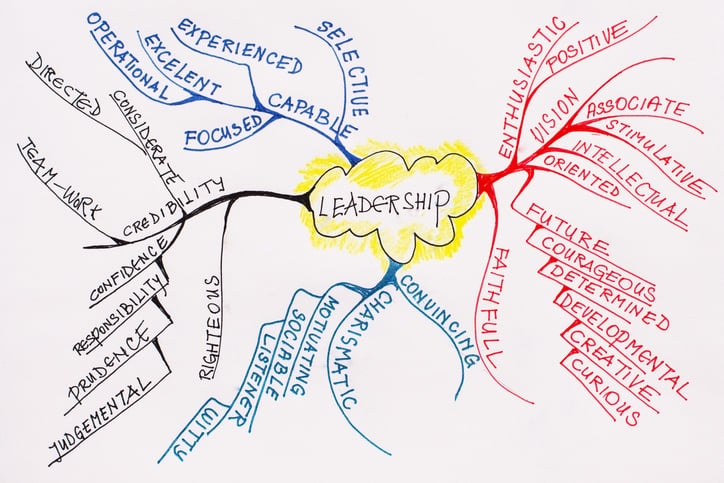A few weeks ago, I embarked on a solo three-day walking journey. Not to set a record, not to prove my bravery, not to maintain my fitness. Simply to go from point A to point B (with 25 km per day between the two points), alone in nature and with my thoughts.
From this detour—a soothing parenthesis that I acknowledge as a luxury—I drew some analogies with personal and collective transformations that I would like to share with you.
Walking, an allegory of transformation
Endurance requires respecting the pace (and oneself)
It's a well-known saying: those who want to go far walk at a steady pace. If, at the first kilometer, we set off at a good pace, mindful not to push too hard, it's at the end of the first hour that the question of speed arises: "At this rate, how long will it take me to reach my destination? And if I accelerate, will I get there faster?" Respecting the pace is somewhat comparable to New Year's resolutions; quite quickly, there is a temptation to speed up to reach the destination more quickly.
The advantage of walking, compared to organizational transformation, is that the verdict comes quickly. Any deviation from the pace has consequences within a few tens of minutes. The pain that appears in the ankle, the foot slipping on a mound of earth, the blister making itself felt... all quickly remind us that "time takes precedence over space," and not the other way around.
In transformations, it's sometimes regrettable to have to wait for painful somatic manifestations to realize that we simply wanted to go too fast. Or worse, not to realize it and conclude that failure is due to not going fast enough! And therefore, decide to accelerate... Can you see the systemic loop?
Every step counts: none is "superior" to the other
In transformation processes, specialized consultants often like to identify key stages that would contain the "essence" of the transformation. Moments that would be essential while others would be more accessory. Such a convention, for example, or the launch of the use of a tool.
However, walking teaches us a very different reality.
Certainly, the landscape can change (sometimes it goes up, sometimes it goes down), the weather can be more or less clement (walking in the sun and in the rain is "not the same"), and the condition of the walker adds its touch of diversity (that left ankle always hurts a bit)? Nevertheless, each step is necessary to bring us closer to the goal, 80 cm by 80 cm, and none can be subtracted from the final result.
Recognizing its importance at each moment has two direct effects.
- The first is to remain present in what one is doing and to recognize its intrinsic "greatness," rather than projecting into an illusory future of which we ultimately know very little.
-
The second effect is to desacralize grand events and other milestones that have their functions, but no more than that, and thus give priority to the daily work; the one that produces value.
Sometimes, we think we won't make it (and then, it passes)
If you go beyond the digestive stroll, long-distance walking belongs to the category of long-term exercises. Even without going to Compostela, a walk of a few days introduces you to a particular rhythm where the body is subjected to a continuous and repetitive practice to which it is not accustomed.
And, at one point or another, the body knows how to remind the mind! The knee locks, there's a strange noise in my shoe... will the blister burst?
At this moment, temptation sets in. Is it reasonable? Does it serve any purpose? Will I make it? If it's night; will I be able to navigate? If the blister bursts, will I be able to walk? This temptation is to not see the path already traveled, to start thinking about what remains to be covered, and to hitchhike to quickly interrupt this absurdity.
How long does this state of mind last? In fact, as long as you allow it to continue its conversation. And often it stops a few minutes after the start of the break you impose on yourself. That is to say, at the very moment when you conform to the rigor of sustainable effort.
If you have experienced a transformation, or several, this sequence may remind you of something. The path already traveled is a visible sign of our ability to make a journey: everything will be fine.
We always forget something (and it's okay)
Every walker knows that their survival on the road depends on the weight of their backpack. Above ten kilos (for men), there's going to be a problem. So, we travel light by taking only the essentials.
However, there's a slight problem: we discover the essentials partially as we progress on the journey. Food, foot care, emergency medicine, spare clothing... as we choose, we inevitably give up something. And realizing this, one hour away from the first grocery store/pharmacy/other that will be closed anyway, creates a feeling of frustration that is multiplied by the fatigue accumulated by the effort.
The sympathetic click that occurs (and which is a direct consequence of the "framework" we set while walking far) is that we then realize that what is missing, in fact, is not missing. That we can do without it. To do without. And that it's not so serious.
We have just seen that, to walk, to make a move, to transform, a certain "ecology" must be put in place to endure the distance. I propose some fundamental hypotheses on this subject.
Walking may enlighten some fundamental aspects of transformation processes
Whether it's personal transformation or the transformation of a group, the theoretical limit has a precise name: the double bind (or double constraint if you're a purist). Beyond the pride of believing that one could "transform oneself" or worse, "transform others," the double bind inevitably catches up with us in the fact that we cannot both be part of a system and not be part of it. We cannot totally control a transformation (our own or that of others) because we obstruct the transformation as soon as we provoke it. The "I am" naturally creates an obstacle to the "I will be."
Is this double bind sometimes painful? Yes: but it is also a formidable barrier to our underlying desire for omnipotence, which could potentially place us in a role of tyrant; a tyrant of ourselves and/or a tyrant of others.
Can this double bind be resolved? Yes, but by one factor only: the time of experimentation.
To transform = to experiment
Fortunately, if we cannot "transform," we have the possibility, facing ourselves or a group, to set a framework, preferably experimental, that allows us to choose transformation rather than the status quo. "What if I did this?" "What if we try that?" proves to be a powerful engine for deeply modifying one's relationship with oneself and the internal interactions of a group.
Naturally, this modality clashes with our managerial belief system in which the value of hierarchical order is very strong. Inherited from parental educational patterns (we obey the leader like we obey mom and dad... or at least we think so; otherwise, we will be punished!... or at least we think so), the idea of the effective omnipotence of hierarchical order is prevalent.
From this understanding, which is a relatively new phenomenon, emerges a transformative desire carrying its own contradictory injunction: "I order you to transform (to no longer obey!)"
Transforming in urgency... really?
The science of change management posits the perception of a sense of urgency as a prerequisite for a transformation framework. "If we don't change, we will be eaten/killed by (Amazon, a startup, Google, our neighbor, our son...)."
Without questioning the necessity of a trigger for awareness, it can still be noted that this type of discourse inherently carries a sense of needing to act "quickly," of striking while the iron is hot, and also conforming to the schedule of changes in organizations (18 months of life expectancy in a transformation role).
Transformation thus often becomes a race to transformation, adorned with poetic code names like Thing 2019, Thingamajig 2022... And in doing so, it's no longer a transformation; it's a "sprint"! Agile = scrum = sprint = race = it's not SAFe... there, everything is mixed up!
Urgency is sometimes the main prison preventing the success of a journey.
Transformation? What if it's about not accelerating to go fast?
Because, to go fast, we push harder! And the harder we push? The more resistance we encounter! Systems thinking is indeed the cursed soul of forceful transformations led with a stick. A read, even in passing, of Peter Senge forewarns the result of a transformation limited to a PR stunt: today's problems come from yesterday's solutions, the easy solution brings you back to the initial problem, etc.
Time is our ally; as long as we respect it
Already, if you've had the patience to read this far, it means you have a penchant for lengthier discussions ;-) But more seriously, we can posit, as a (preliminary) synthesis, that the economy of transformation must adapt to slowness, imprecision, moderation, and care for the social body undertaking the same transformation.
Let's be realistic: the value of work has not been "erased" by the value of "measuring work" in a matter of a few years. It took decades to apply layer after layer of managerial mechanisms and control tools that gradually distanced "management" from professional gestures. So, it will also take years to reintegrate a managerial culture that cares more about the value produced than the cost measurement.
Wanting to hasten this movement is ultimately staying in the same initial perspective or, to quote Paul Watzalvick, not recognizing that "more of the same gives more of the same result."
Getting out of the system is not going against it; it's going with it. But more slowly. By taking a step, for example.
And you? What do you think?




